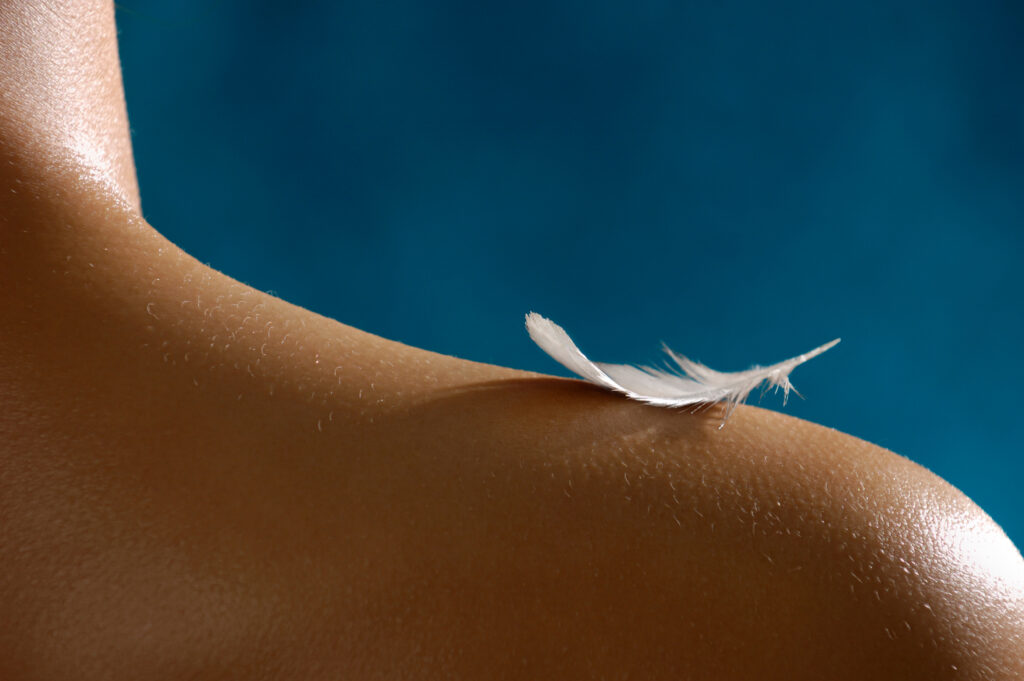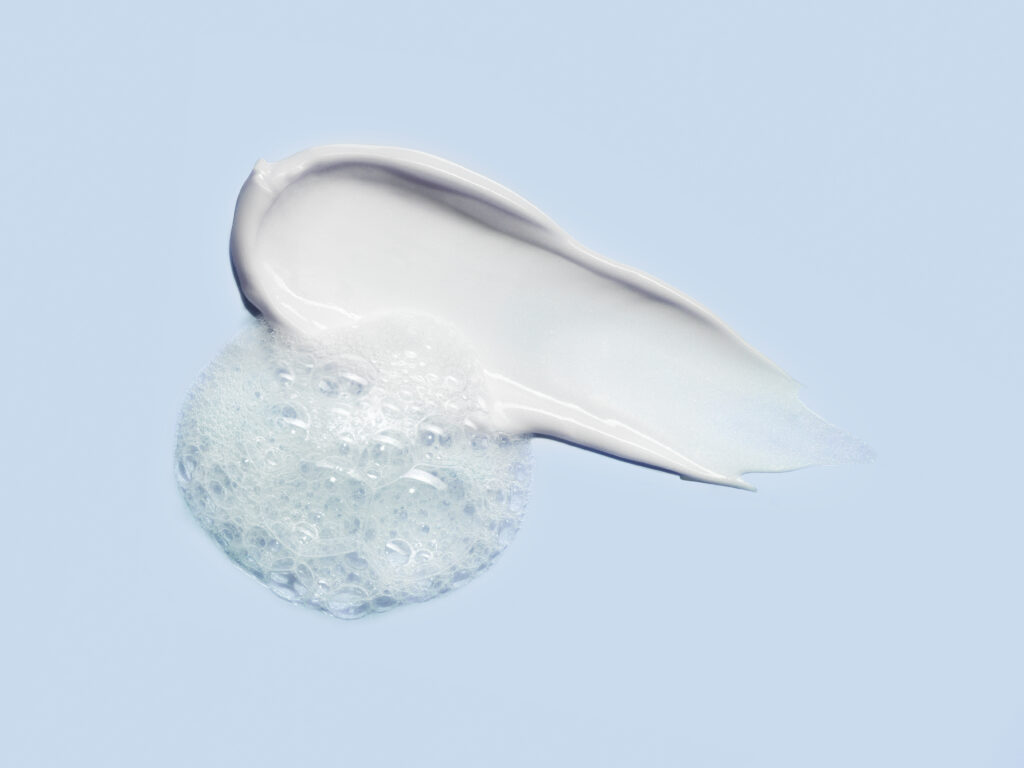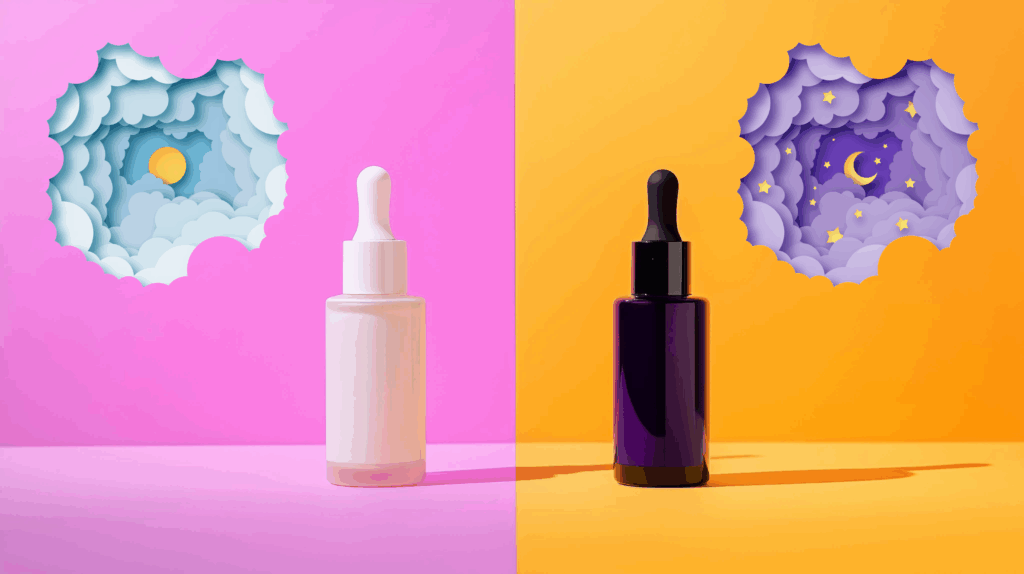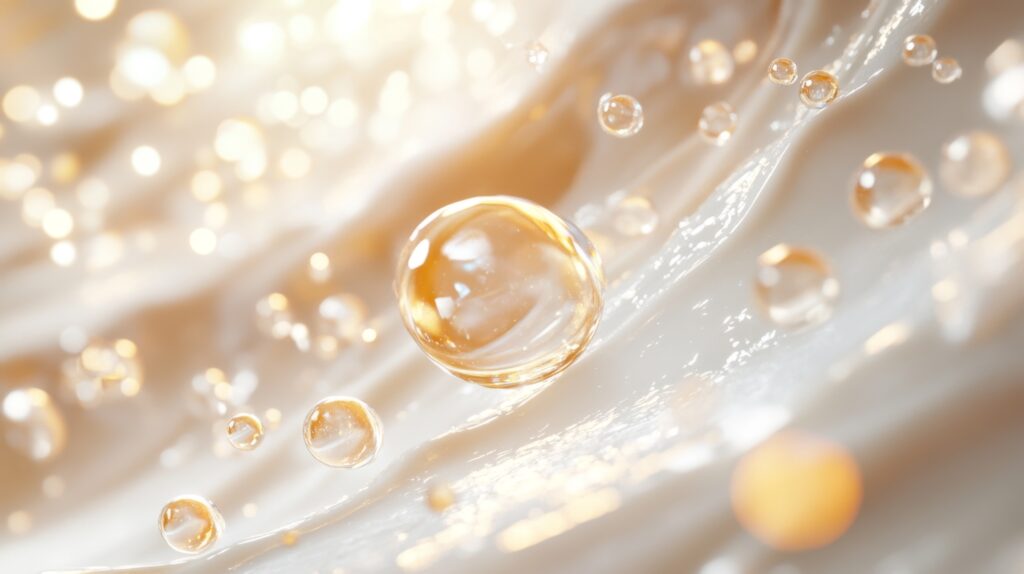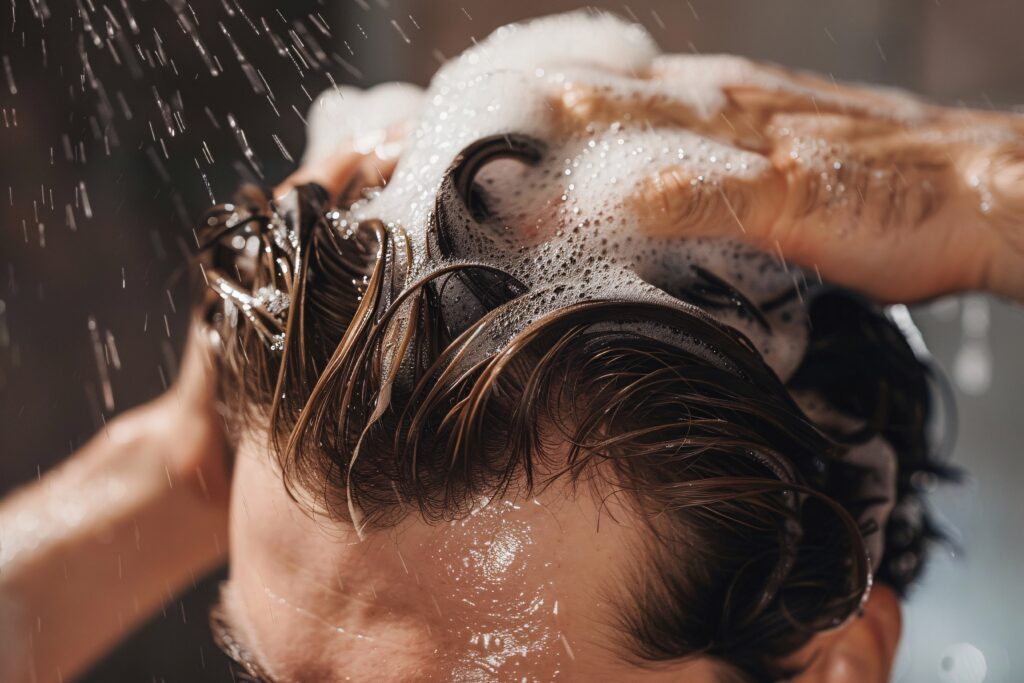Formulating Cosmetics Geared Toward Menopause
As women enter menopause, they experience significant hormonal shifts that impact not only their overall well-being but also to their skin and hair. During this life stage, the decrease in estrogen levels can lead to various skin changes such as dryness, loss of elasticity, thinning, and increased sensitivity. As a result, there is a growing demand for cosmetic products specifically formulated to address the unique challenges of menopausal skin and hair. At Deveraux Specialties, we recognize the importance of catering to this demographic with innovative, science-backed ingredient solutions.
Understanding Menopausal Skin
Menopausal skin undergoes several changes due to the reduction in estrogen, which plays a vital role in maintaining skin health. These changes include:
► Decreased Collagen Production
Lower estrogen levels lead to reduced collagen production, causing a loss of skin elasticity and firmness. This results in sagging skin and the formation of wrinkles.
► Increased Dryness
The skin’s ability to retain moisture diminishes, causing dryness and flakiness. This is due to a decrease in sebum production, which typically helps to keep the skin hydrated.
► Thinning of the Skin
A decrease in collagen and elastin makes the skin thinner and more fragile, increasing the risk of damage and irritation.
► Sensitivity and Redness
With a weakened skin barrier, menopausal skin becomes more reactive to environmental stressors and skincare ingredients.
► Changes in Pigmentation
Hormonal fluctuations can cause uneven skin tone, age spots, and hyperpigmentation.
Understanding Menopausal Hair Changes
During menopause, the decline in estrogen and progesterone levels can lead to several noticeable changes in hair, including:
► Thinning Hair
Reduced estrogen levels can slow down hair growth and increase hair shedding, leading to overall thinning. Hair may also become finer in texture, making it appear less voluminous.
► Dryness and Brittleness
Hormonal changes can affect the scalp’s ability to produce natural oils, leading to drier, more brittle hair. This lack of moisture can make hair more prone to breakage and split ends.
► Loss of Elasticity
With the reduction in hormones that support hair health, hair can lose its natural elasticity, resulting in less bounce and more difficulty in styling.
► Changes in Texture
Some women may experience alterations in hair texture, with straight hair becoming wavier or curly hair losing its curl pattern.
► Scalp Sensitivity
Just as the skin can become more sensitive, so can the scalp, leading to discomfort or irritation with certain hair products.
Formulation Considerations for Menopausal Skin and Hair Care
Formulating effective skincare and hair care products for menopausal women requires a deep understanding of the physiological changes that occur during this life stage. These changes necessitate a more targeted approach to product development, focusing on specific ingredients and formulation strategies that address the unique needs of menopausal skin and hair. Below is an expanded exploration of the key considerations for both skin and hair care formulations.
► Gentle and Nourishing Formulations
As the skin becomes more sensitive and fragile during menopause, it is crucial to formulate products that are gentle yet effective. The skin’s barrier function is often compromised, making it more prone to irritation and redness.
Opt for soothing and anti-inflammatory ingredients, avoiding harsh chemicals, fragrances, and alcohols that can strip the skin of its natural oils and exacerbate sensitivity.
Use low-irritation emulsifiers and stabilizers that maintain product integrity without causing discomfort. Incorporate ingredients that mimic the skin’s natural lipids, such as ceramides and squalane, to reinforce the barrier and enhance hydration.
► Barrier Repair and Maintenance
The skin’s barrier is essential for protecting against environmental stressors and retaining moisture. During menopause, the barrier becomes weaker, leading to increased water loss and heightened sensitivity.
Include barrier-strengthening ingredients such as ceramides, fatty acids, and cholesterol. These components are naturally found in the skin and play a critical role in maintaining its protective function.
Consider incorporating these ingredients into products like rich creams, overnight masks, and serums that can provide intensive repair and protection. Additionally, using occlusive agents can help lock in moisture and prevent transepidermal water loss (TEWL).
► Hydration and Moisture Retention
Menopausal skin is often characterized by dryness due to a decrease in natural oil production. Hydration is crucial to maintaining the skin’s suppleness and preventing the formation of fine lines and wrinkles.
Incorporate humectants like hyaluronic acid, glycerin, and urea, which attract and bind water to the skin, providing long-lasting hydration. Use occlusive agents and emollients such as jojoba oil or avocado oil to create a protective layer that seals in moisture and softens the skin.
Consider developing multi-phase products, such as oil-in-water emulsions or hydrating gels with encapsulated actives, to deliver both immediate and long-term moisture benefits.
► pH Balance
The skin’s natural pH is slightly acidic, which helps maintain the integrity of the skin barrier and supports a healthy microbiome. Formulations with the correct pH can prevent irritation and promote overall skin health.
Use buffering agents like sodium lactate or lactic acid to adjust the product’s pH to be skin-friendly (typically between 4.5 and 5.5). This helps protect the skin’s acid mantle, which can be disrupted during menopause.
Regularly test the pH of formulations during development to ensure they remain within the optimal range throughout the product’s shelf life. Incorporate pH-adjusting ingredients in low concentrations to fine-tune the product’s acidity without compromising efficacy.
► Targeted Treatments
Menopausal skin often faces multiple challenges, including hyperpigmentation, loss of firmness, and increased sensitivity. Targeted treatments can provide focused care for these specific concerns.
Develop serums and spot treatments that address issues like pigmentation (using ingredients like vitamin C and licorice extract), firmness (using retinoids and peptides), and sensitivity (using calming agents like bisabolol and allantoin).
Encourage the use of layering techniques, where a light serum is applied first, followed by a richer cream or oil. This allows for a customized approach, where women can tailor their skincare routine to their specific needs, focusing on different concerns with different products.
► Strengthening and Fortifying Formulations
Thinning and weakening hair is a common concern during menopause due to hormonal changes. Strengthening the hair shaft can help reduce breakage and maintain hair density.
Incorporate hydrolyzed proteins like keratin, silk, or wheat protein, which can penetrate the hair shaft and reinforce its structure. These ingredients help to restore strength and resilience to weakened hair.
Consider the inclusion of bonding agents like bis-aminopropyl diglycol dimaleate, which can repair broken disulfide bonds within the hair, strengthening it from the inside out. Develop fortifying shampoos, conditioners, and leave-in treatments that provide consistent strengthening benefits with each use.
► Moisture Retention and Hydration
Dryness and brittleness are common in menopausal hair due to a decrease in natural oil production. Maintaining adequate moisture levels is key to keeping hair soft, manageable, and less prone to breakage.
Utilize humectants to draw help moisture into the hair and emollients to smooth the hair cuticle and lock in moisture.
Develop deep conditioning masks and intensive repair treatments that can be used weekly to replenish moisture and restore softness to the hair. Consider formulating lightweight hair oils or serums that can be applied to the ends of the hair to prevent dryness and split ends without weighing the hair down.
► Scalp Health
Include anti-inflammatory and calming ingredients to soothe the scalp and reduce irritation.
Consider incorporating gentle exfoliating agents to remove dead skin cells and promote cell turnover, ensuring a healthy environment for hair growth.
Use prebiotics and probiotics to support a balanced scalp microbiome, which can help prevent common scalp issues such as dandruff and inflammation.
► Gentle Formulations
Menopausal hair is often more fragile and prone to damage, requiring gentle care to prevent further weakening or breakage.
Formulate shampoos that are free from harsh sulfates, which can strip the hair of its natural oils and lead to dryness. Instead, use mild surfactants. Create hair care products with a slightly acidic pH (around 4.5 to 5.5) to help close the hair cuticle and reduce frizz, making hair appear smoother and shinier.
If avoiding silicones, which can build up on the hair over time, consider using silicone alternatives that provide similar benefits without the drawbacks.
► Targeted Treatments
Menopausal women often need specific treatments for issues like thinning, dryness, and loss of volume. Providing targeted solutions can help them address these concerns more effectively.
Develop concentrated serums and scalp treatments that can be applied directly to areas of concern, such as thinning spots and volumizing shampoos, conditioners, or styling products that help lift the hair at the roots and create the appearance of thicker, fuller hair.
Create leave-in conditioners or sprays that protect against heat and environmental damage, reducing the likelihood of breakage and split ends.
► Customizable Regimens
Every woman experiences menopause differently, and their hair care needs can vary widely. Offering customizable regimens allows women to tailor their hair care routine to their specific challenges.
Develop a range of products that can be mixed and matched based on individual needs, such as volumizing shampoos paired with deep conditioning treatments or strengthening serums used alongside moisturizing conditioners.
Provide products in different concentrations or intensities, allowing women to start with a mild formulation and increase the strength as needed. This approach can be particularly beneficial for treatments targeting hair thinning or scalp health.
Tailored Solutions for Empowering Women
Menopause marks a significant transition in a woman’s life, bringing about unique changes in both skin and hair that require specialized care. As formulators, the opportunity to create products that address these specific needs is not just about meeting a demand—it’s about empowering women to embrace this life stage with confidence and grace. At Deveraux Specialties, we are dedicated to providing the innovative ingredients and expert support you need to formulate effective, science-backed solutions for menopausal skin and hair.
Explore our selection of featured ingredients that help provide the foundation for creating high-performance, targeted formulations that resonate with women during this pivotal stage of life. Let’s work together to empower women through thoughtful, effective formulations that celebrate beauty at every age.


